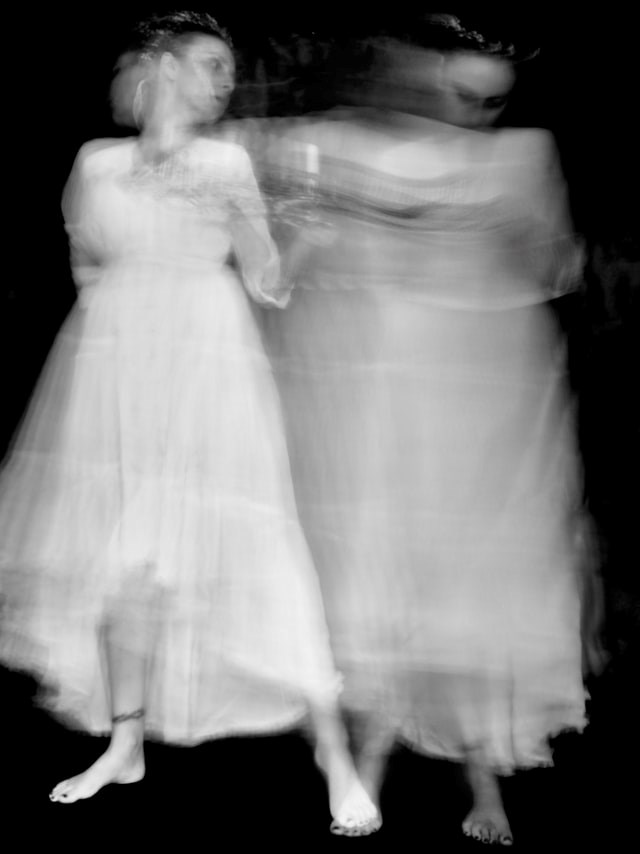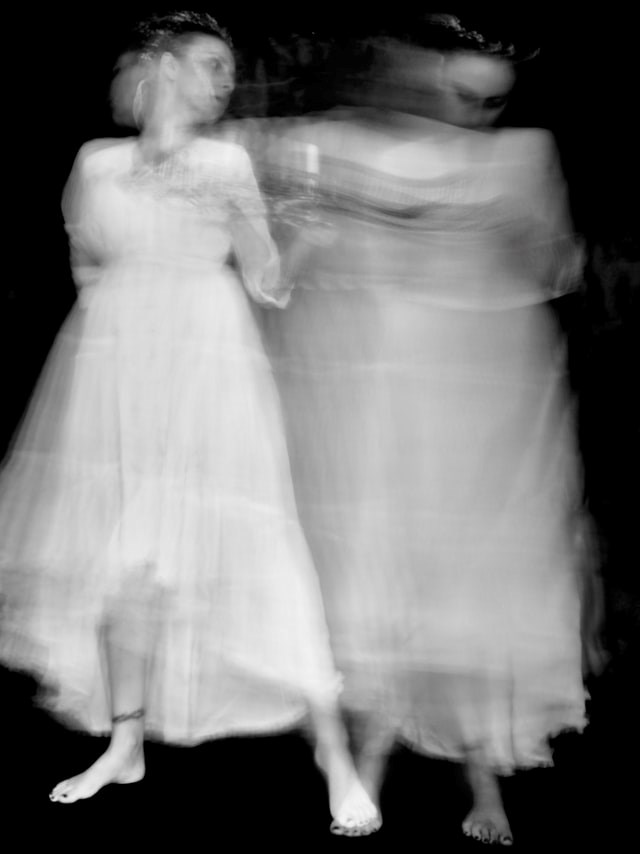 “The invisibility at the heart of things was traditionally named the deus absconditus, the ‘concealed god’,” but ours is “a culture that marginalizes the invisibles.” So says psychologist James Hillman’s The Soul’s Code. He adds that “more enigmatic moments tend to be shelved.” But not always.
“The invisibility at the heart of things was traditionally named the deus absconditus, the ‘concealed god’,” but ours is “a culture that marginalizes the invisibles.” So says psychologist James Hillman’s The Soul’s Code. He adds that “more enigmatic moments tend to be shelved.” But not always.
Last year, The Walrus magazine published “Why Do We See Dead People?” an article by Patricia Pearson. “Humans have always sensed the ghosts of loved ones,” the article’s tagline notes. “It’s only in the last century that we convinced ourselves this was a problem.”
Pearson surveys the evolution of views on grief from Sigmund Freud’s “’wishful psychosis’ … a notion of temporary madness featuring wilfully conjured visions of the dead” (he advocated letting go and moving on), to the subsequent relabelling of ghostly presences as “grief hallucinations,” to a mid-1990s model called “continuing bonds.”
Pearson also examines related developments such as the work of London’s Society for Psychical Research in the 1880s, which included a ten-nation Census of Hallucinations. The census concluded “that between 7 and 19 percent of people experience sensory hallucinations at some point in their lives.”
A 1972 study of Welsh widows and widowers found that the prevalence rate of grief hallucinations (seeing the face of their beloved, hearing their voice, smelling their pipe or perfume, or otherwise sensing their presence) was “about 50 percent” and that 75 percent of the study participants had never spoken of their experiences before being asked by the study survey. These “people didn’t wish to be pathologized,” Pearson says. “They also didn’t want to move on.”
These reactions indicate a bifurcation of experience in the general population that Gerry Fenge, author of The Two Worlds of Wellesley Tudor Pole, amusingly references when he observes that the experience of unusual “phenomena belongs to the personal but incommunicable order of things: utterly convincing to the subject but a matter for polite coughing to others.”
As Fenge’s title suggests, the British mystic Tudor Pole (1884-1968) had the rare ability to move between our visible world and the (to us) invisible ones that interlace it. In August 1917, TP, as he was known to many, published a little book, Private Dowding, the subtitle of which explains that it’s “A plain record of the after-death experiences of a soldier” killed on the Somme in mid-1916 (confirmed by the Commonwealth War Graves Commission).
Thomas Dowding had been a schoolmaster and recluse before becoming a soldier. His discarnate being tells TP he’d feared “extinction” and “It is because extinction has not come … I want to speak to you.” He confesses, “I never used my opportunities during earth life. My spiritual nature atrophied…. The spiritual world is everywhere…. We humans hide from the light. We grovel among the illusions created by our own thoughts. We surround ourselves with misconceptions.”
Dowding describes being in purgatory. “The majority who come over here rise above or rather THROUGH purgatory into higher conditions…. A man sinks or rises through the action of a spiritual law of gravity. He is never safe until he has emptied himself completely. Release comes from within.” He says elsewhere, “I shall remain near earth conditions whilst learning lessons I refused to learn before.”
Although TP says his “communications with Thomas Dowding were so real that he seemed to be in the room sitting at my elbow, prompting my pen,” he admits “there can be no final proof concerning these matters. One must be guided by the interior worth of the messages themselves.”
Digitized by Google, Private Dowding is available free on the internet. It can be read in about an hour.
 Author of the forthcoming book, A Snake on the Heart – History, Mystery, and Truth: The Entangled Journeys of a Biographer and His Nazi Subject, writer/historian Patrick Wolfe has an abiding interest in grace and the mystic. His article “Wellesley Tudor Pole and the Big Ben Silent Minute” is available on his web site: https://patrickswolfe.com/
Author of the forthcoming book, A Snake on the Heart – History, Mystery, and Truth: The Entangled Journeys of a Biographer and His Nazi Subject, writer/historian Patrick Wolfe has an abiding interest in grace and the mystic. His article “Wellesley Tudor Pole and the Big Ben Silent Minute” is available on his web site: https://patrickswolfe.com/
You can read more articles on our interfaith blog, Spiritually Speaking, HERE
* This article was published in the print edition of the Times Colonist on Saturday, August 7th 2021
Photo by Photos_frompasttofuture on Unsplash



